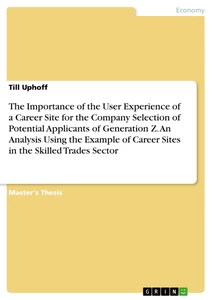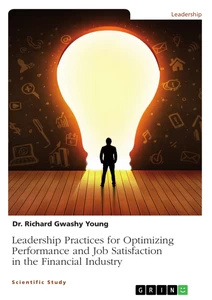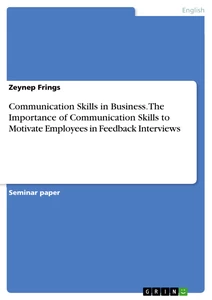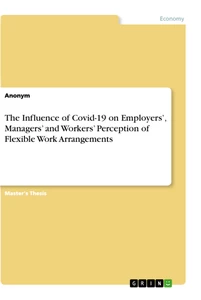<b>[openpublishing template="presentation" get_by_id="1127249"] : </b></br>https://api.openpublishing.com/resource/v2/document.1127249[:basic,non_academic.realm_genres.*]&cache=yes
<b>[openpublishing template="presentation" get_by_id="1239222"] : </b></br>https://api.openpublishing.com/resource/v2/document.1239222[:basic,non_academic.realm_genres.*]&cache=yes
<b>[openpublishing template="presentation" get_by_id="1030385"] : </b></br>https://api.openpublishing.com/resource/v2/document.1030385[:basic,non_academic.realm_genres.*]&cache=yes
First things first:
- Preparation helps you walk into the interview more relaxed.
- Prepare answers to standard questions.
- Think of questions to show your interest.
In the first step of an application, you usually have to score points with your CV and letter of motivation. Once this obstacle has been overcome, the personal component is added to the professional one. At the interview, it’s not just your knowledge and previous work experience that count, but also how you present yourself. We explain step by step how to prepare for a job interview and how to present yourself confidently.
Dealing with the company
You have probably already researched the company and the advertised position for the application letter. However, application processes can take a long time and it is worth reminding yourself of the details, especially if you have applied for several jobs. You are welcome to write down notes about the company to take with you to the interview or to read through again shortly beforehand. Not every interviewer will ask questions about the company, but it is quite common for recruiters to prepare in-depth questions that you can only answer with the help of prior internet research. So take the time to click through the homepage, look up important customers and find out something about the company founders or managing directors. This way, you will feel well prepared and can start the interview with confidence.
Practicing your own introduction
Most interviews start by asking you to briefly introduce yourself and your professional background. Instead of mindlessly listing all the facts and figures, you can use this moment to give a comprehensive impression of yourself. Think in advance about which stages in your life you would like to emphasize, how you can explain your training and job decisions and how you can create a common thread in your CV. Also think about how you can justify gaps in your CV or unconventional changes of subject. This is where many recruiters will ask questions. Also think about how you can present yourself at your best. Especially if you are still at the beginning of your career and do not yet have much professional experience, you should skillfully highlight your advantages and knowledge. You can potentially use any student job or university course to showcase your interests and skills.
Thinking about answers to common questions
“Why are you interested in our company? What appeals to you about this position and what skills do you have? Why do you want to change jobs? How do you deal with stressful situations? Where do you see your strengths and weaknesses?” These are all standard questions that you will come across in one way or another in most job interviews. To avoid having to pull something out of your sleeve in a matter of seconds, you can think about how you want to answer these questions in advance. It can also help here if you make notes or discuss your answers with friends or family. This way, your answers will stay in your head and you won’t be caught off guard. Also think of your own questions to show interest and encourage a fluent conversation. If you have already answered common questions confidently, less predictable questions won’t have much of an impact on you. Some companies get creative and ask which superhero you would like to be or what your dream working day would look like. Don’t worry, the interviewer is just trying to find out more about your personality and way of thinking with these questions. There is no right or wrong answer to these questions. If you still want to prepare yourself, you can research unusual questions and think about possible answers. This encourages creativity and boosts your confidence.
Choose the right outfit
Very few companies still require you to wear a suit and tie or a suit to a job interview. This only applies to jobs that also require such a choice of clothing in everyday working life. Otherwise, it is usually sufficient to dress simply. Also consider how the company presents itself to the outside world. This often depends on the industry in question. In the creative industry, for example, your choice of outfit can be much more unusual than in the financial sector. In any case, you can’t go wrong with simple colors and classic cuts. Also make sure you wear something that makes you feel comfortable and not dressed up. Even the most expensive blazer won’t help if you radiate insecurity in it. Instead, go for something that gives you freedom of movement and suits you and your personality.
Plan the journey
As the date approaches and the time and location are fixed, it is advisable to plan your journey in advance. You can look at driving and walking routes and decide what time you are leaving or driving. Make sure you plan a buffer for delays, traffic jams or other problems. This will save you the stress of constantly having to look at your watch and panicking at every minute of delay. But the buffer doesn’t have to be an hour long. After all, if you spend ages pacing back and forth outside the office, you’ll have too much time to think and may become even more nervous. A quarter to half an hour gives you time for the unexpected and you still don’t have to wait forever.
Gain life experience
The interview doesn’t go as you’d hoped? You don’t like the other person or the company culture and you feel uncomfortable? That’s no reason to despair, but an important realization! Not every job and every company is right for you. Very few people only need one application letter and interview to find their dream job. Pay attention to yourself and your gut feeling. And even if a good interview doesn’t end in a job offer, you haven’t wasted any time. On the contrary, you have gained important experience and are a little better prepared for the next interview. Especially if you have come a long way in the application process, you can also ask why you were ultimately rejected. This will help you find out where there is room for improvement. Sometimes, however, it’s simply a neck-and-neck race with other applicants and the rejection has nothing to do with your skills and your interview. So don’t be too hard on yourself and take the experience from the interview with you into your next adventure – maybe it will end with your dream job.
Our recommendations:
Do you like our magazine? Then sign up for our GRIN newsletter now!




